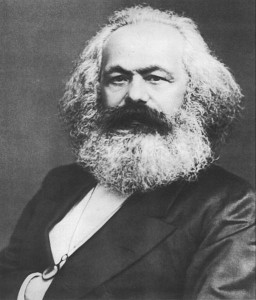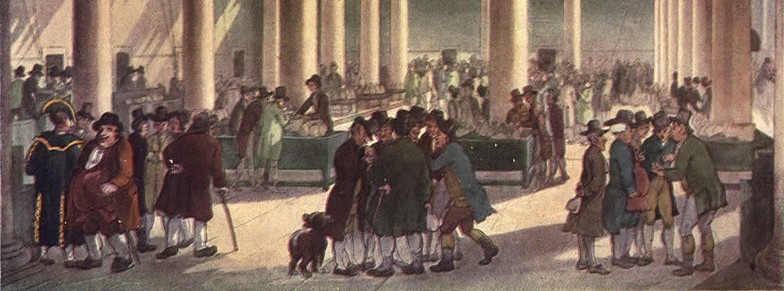
A Portrait of Karl Marx
by John Mayall, used under CC0
By: Alina Cappadora
Karl Marx was just an ordinary man when he entered this world. However, as he progressed through life, his views on the way society should run became more “rebellious” against the social norms.

Karl Marx Birthplace in Trier
by , used under CC BY
In 1818, he was born to Heinrich and Henriette Marx in Trier, an area in the Rhineland of Germany. He was their second child of what would be nine children. This number would have been ten had his eldest brother survived infancy.Four of his other siblings were diagnosed with Tuberculosis.Later in his life when he tried to sign up for the military, he was denied because he was suspected to have TB as well, even though he did not. (Thomas, 2012)
The Marx family stood out quite a bit in the Rhineland because of their religion. In an area dominantly consisting of Catholics, they chose to be converted under the Protestant church because of the father’s beliefs. Marx had a different view on religion and he expressed this in his first article, “Reflections of a Young Man on Choosing a Vocation” at just seventeen years old. Later in life, however, he chose the completely different route of Atheism (Staff, 2009). One can only assume by the ideas in that very article, that he did not want to be held back in his studies or work by the burden that is choosing a religion.
Marx attended the University of Berlin, where he found himself writing for a newspaper that was liberal, democratic. The paper was called “Rheinische Zeitung” and he later became the editor in 1842. The next year after he became editor, that paper was actually banned by the government for being “too radical” as his ideas started to challenge different schools on their religion, politics, ethics and philosophy (Staff, 2009).
Marx was a romantic in poetry, but also in life. He and his would be wife, Jenny von Westphalen, secretly engaged in 1836. However, she had believed that they had to wait for seven years before they could be married. Karl Marx waited to marry her. In 1843, the two of them moved to France where he met his lifelong friend Friedrich Engels (Staff, 2009). The two of them together wrote The Communist Manifesto, the book that turned Marx (and Engels) into revolutionaries. (Thomas 2012). The book can be discussed further in the “Revolutionary Marx” tab.
History.com Staff. (2009). Karl Marx. In History.com. Retrieved April 1, 2014, from http://www.history.com/topics/karl-marxThomas, P. (2012).
Thomas, P. (2012). Karl Marx. London: Reaktion Books. Retrieved April 1, 2014, from Butler University Libraries (ISBN1-86189-906-8;ISBN1-86189-945-9 ).
